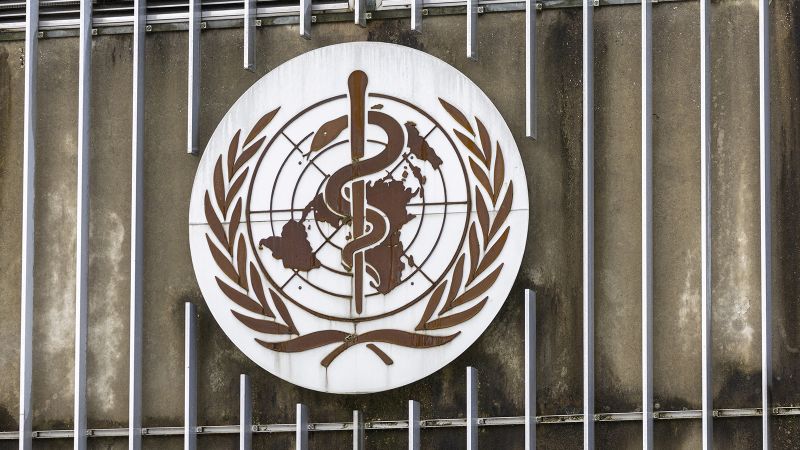
Trump announces US withdrawal from World Health Organization
CNN
President Donald Trump announced Monday he is withdrawing the US from the World Health Organization, a significant move on his first day back in the White House cutting ties with the United Nations’ public health agency and drawing criticism from public health experts.
President Donald Trump announced Monday he is withdrawing the US from the World Health Organization, in a significant move that drew criticism from public health experts on his first day back in the White House. Trump has long been critical of the United Nations’ health agency, and his administration formally began a withdrawal from the WHO in July 2020 as the Covid-19 pandemic continued to spread. But four years ago, then-President Joe Biden halted the US’ exit from the body tasked with coordinating the international response to health emergencies in one of his first actions after taking over the White House. The text of Monday’s executive order cites the “organization’s mishandling of the COVID-19 pandemic that arose out of Wuhan, China, and other global health crises, its failure to adopt urgently needed reforms, and its inability to demonstrate independence from the inappropriate political influence of WHO member states,” as reasons for the US withdrawal. “That’s a big one,” Trump told an aide as he began to sign the executive order, pointing to his 2020 decision and his belief that the US was paying too much money to the organization compared to other countries. In 2020, Trump also consistently accused the organization of aiding China in allegedly covering up the origins of Covid-19 and allowing its spread. CNN has reached out to the WHO for comment. While lawmakers from both parties had criticized the WHO in 2020 when Trump first decided to pull out, many denounced the president’s decision to withdraw during a once-in-a-century global pandemic. Then-House Speaker Nancy Pelosi at the time called it “an act of true senselessness.” And since-retired Republican Sen. Lamar Alexander — then-chairman of the Senate Health, Education, Labor and Pensions Committee — said he disagreed with Trump’s decision.

Gaines County is a vast, flat expanse far in the west of Texas: more than 1,500 square miles of sparsely populated farmland. And right now, this is the epicenter of a measles outbreak the likes of which this state hasn’t seen in more than 30 years. Many here say the Mennonites, a tight-knit Anabaptist community that works much of this land, are at the root of the outbreak’s lightning spread.











